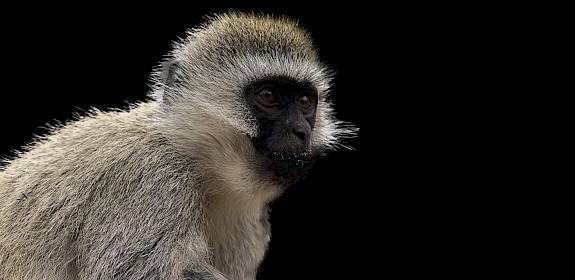Gabon to incinerate audited ivory stockpiles
Libreville, Gabon, 5th April 2012—As a symbol of its commitment to tackling illegal wildlife trade, Gabon will burn its entire ivory stockpile in the coming months, at a date to be announced shortly.
Gabon's ivory stockpiles are being independently audited, ahead of their destruction later this year. © WWF
The news came as Central African and Asian governments, together with specialised UN agencies and international organizations such as CITES, INTERPOL, and the Kenya Wildlife Service, were meeting this week in Libreville, in response to the growing threat of poaching and trafficking of protected and endangered species in Central Africa. The meeting brought together more than 150 experts from 3 continents, paving the way forward to increase national, regional and international co-operation to combat wildlife crimes in the Congo Basin region.
The move to destroy ivory stockpiles is an acknowledgment by the country that ivory from illegal sources has no realizable commercial value, and could leak onto the black market if not destroyed.
To verify that all tusks are accounted for before being burned, an independent inventory / audit of Gabon’s stockpiles is currently being undertaken by the government, supported by experts from TRAFFIC, WWF and other independent observers.
The audit will determine the quantity, weight and origin of the existing tusks, and help establish protocols to ensure that any future seized ivory is properly documented and securely managed. It will set the standards in transparency and accountability for future control of ivory stockpiles.
“Gabon is demonstrating how domestic ivory supplies can be regulated, given the political will to do so,” said Stephane Ringuet, TRAFFIC’s Central African Director who is conducting the audit.
“If Gabon's lead is replicated region-wide, we could see real progress being made in tackling elephant poaching and putting the criminal syndicates behind it out of business.”
Natasha Kofoworola Quist, WWF Central Africa Regional Programme Office Representative said: “The burning of a country’s entire ivory stockpile will be an historic conservation event in Africa, and a strong deterrent signal for all the actors in the illegal wildlife chain trade. We acknowledge the Gabonese Government for taking the lead and the US Government for its support in helping to combat illegal ivory trafficking.”
The Central African Sub-regional Wildlife Anti-Trafficking workshop meeting in Libreville, hosted in Gabon jointly by the Gabonese and Central African Republic Governments with support from the US Government, comes at a time when the elephant poaching crisis has spread, in recent months, across the region, starting with the massacre of hundreds of elephants in Bouba N’Djida National Park in northern Cameroon this January. Soldiers responding to the slaughter have also suffered casualties.
Just weeks later, more elephant killings occurred in Boumba Bek National Park in southeast Cameroon, where 12 suspected poachers were arrested and 14 elephant tusks confiscated.
Across Central Africa, thousands—perhaps as many as 12,000—elephants are killed each year for their tusks, which are in demand as carvings and ornaments in Asia.
Data submitted to CITES, the UN body regulating international wildlife trade, shows that law enforcement is poor or non-existent in many Central and West African countries.
In April 2011, Gabon’s President Ali Bongo announced the creation of an elite military unit whose mission is to secure Gabon’s parks and to protect wildlife, especially against poaching and illegal trade of ivory.
“An inter-agency, coupled to a regional approach and international collaboration is vital to combat poaching in Central Africa and we must act now,” said Suparna Biswas, WWF-Gabon Country Director.
The Libreville meeting is a further step towards the establishment of a regional action plan to tackle poaching and wildlife trafficking, a process earlier started by the Member States of COMIFAC (Commission des Forêts d'Afrique Centrale), with technical support from TRAFFIC and WWF, and financially supported by the US Government.
The report Audit des stocks gouvernementaux d’ivoire au Gabon. Rapport d’étape : 26 mars – 6 avril 2012 (in French with English summary) detailing the ivory stockpiles assessed during the audit carried out earlier this year.




